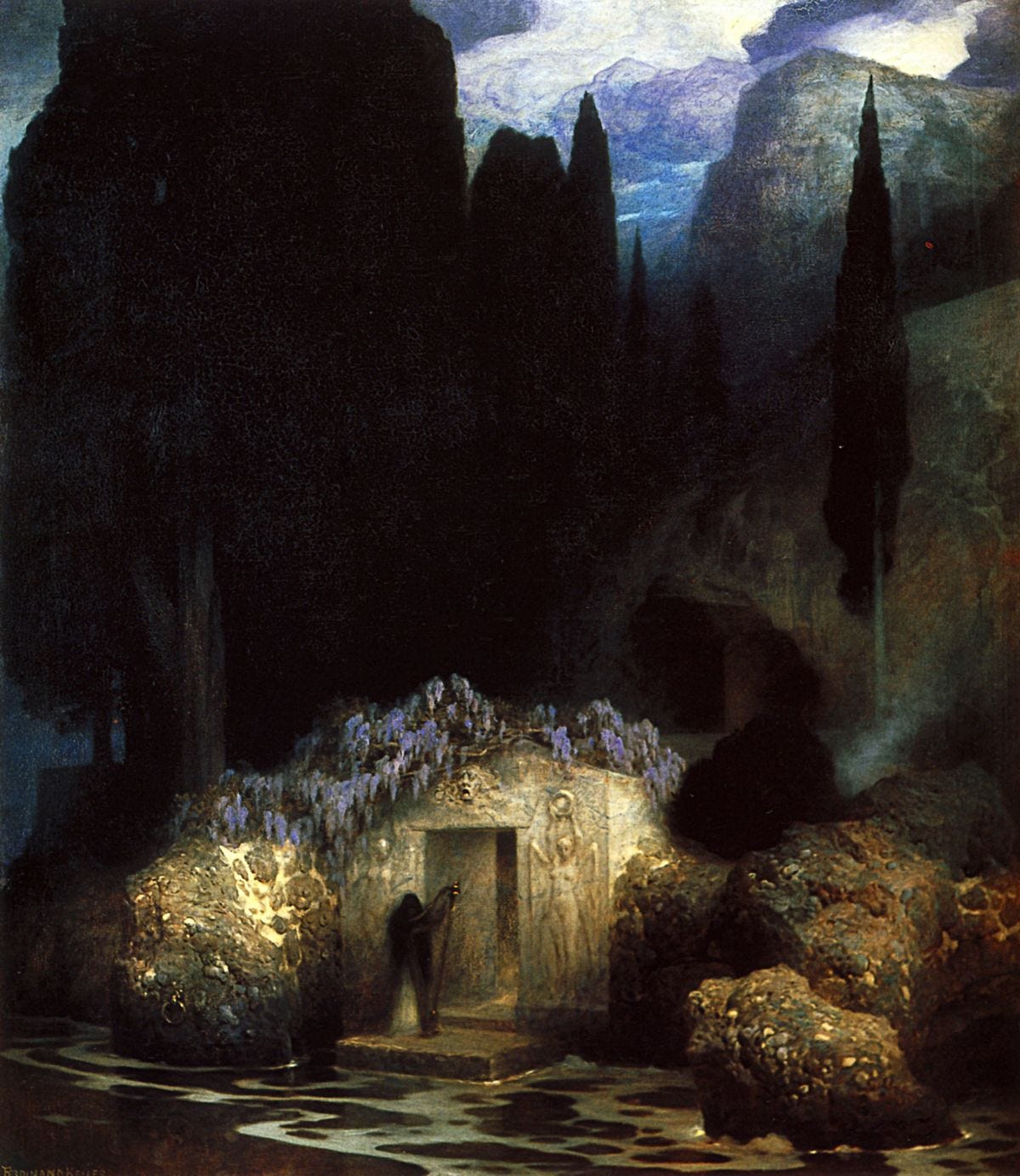Nightside of Eden
Among my best remembered visions are those of the awful cliffs, peaks, & abysses-hideous bleak rock & loathsome blackness.-over which I was borne in the clutch of black winged daemons to which I gave the original name of "night-gaunts", at the age of six! Verily, I have travelled to strange places which are not upon the earth or any known planet. I have been a rider of comets. & a brother to the nebulae.
—H.P. Lovecraft, Letter to Rheinhart Kleiner, May 21, 1920
H.P. Lovecraft was not an atheist. He was a worshipper of the god Hypnos, the Oneiroi, Hermes and Thoth. His books, his letters, and the structure of his life form a hieroglyph which offers his most faithful confession. We are in no position to doubt the word-images of his monstrous soul, as we peer through the holes which let his abstract-outsideness into our world.
Wild places, desolate and hoary, primordial groves never Christened, hollows of gloom never sanctified. These are nightside Edens where djinn, demons and Outer horrors roam. These Intruders that can somehow “instance” familiar objects and appearances. Their masks always shabby and worn with contempt, yet your rational mind will accept that it’s a ‘stranded motorist’ or ‘a quaint bookseller and its attendant’ in the middle of the wilderness. It seems these things have permission to feed on the mineralized.
In paranormal literature, the “rational mind” consistently betrays the witness, brute-forcing the scene’s absurd improbability into mundane ratios, and it is only the visceral intellects which alert the percipient. Tears well up from the heart to cleanse the eyes, the gut revolts, the nervous system thrills with super-paranoia or from above, a flash of insight intervenes. These Intellects will reveal to you the mercreature’s tail, the faun’s cloven hooves or the featureless, leering face of the Night-Gaunt. It is only our “rational” intellect which fails when receiving signals from the Outside.



